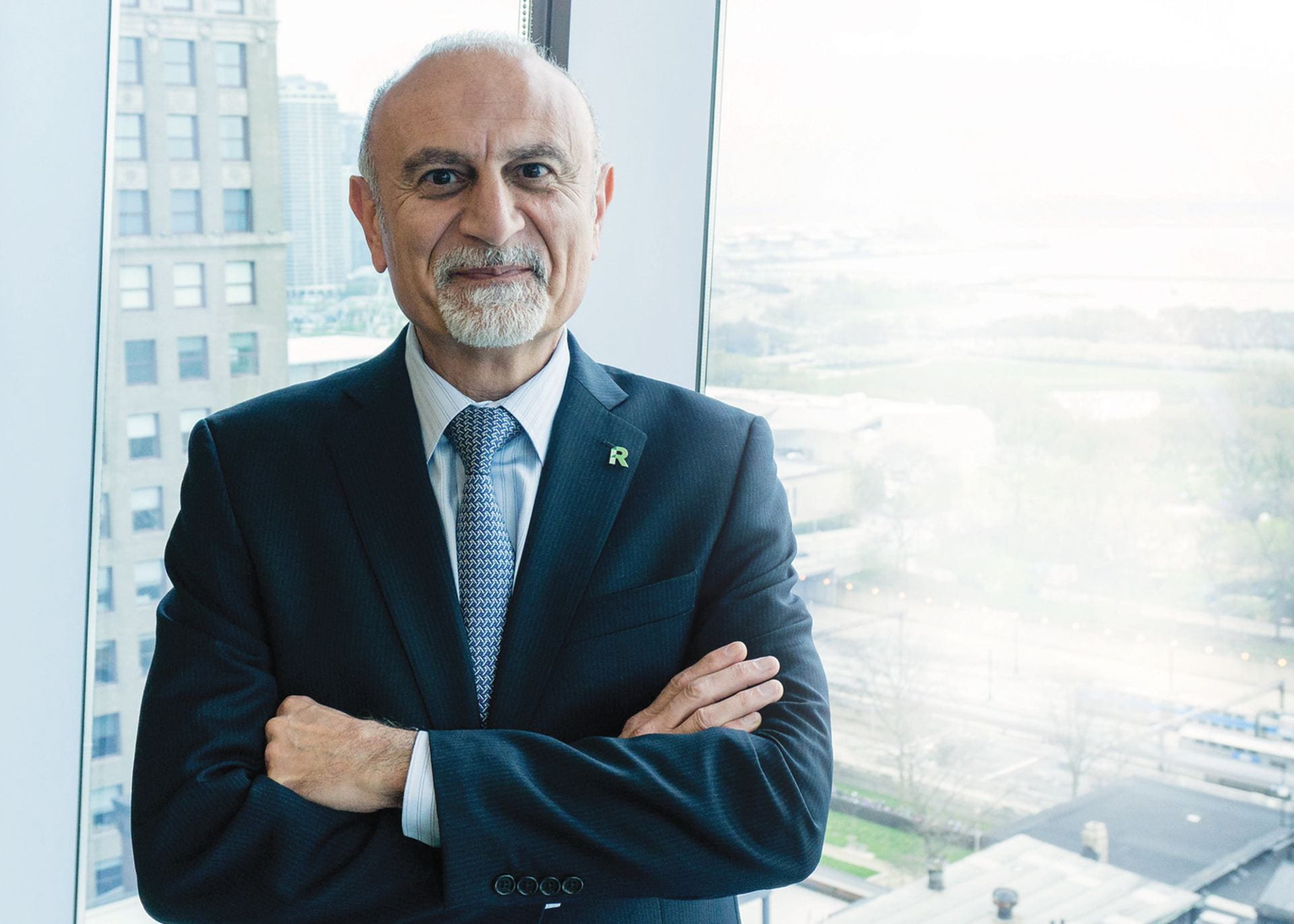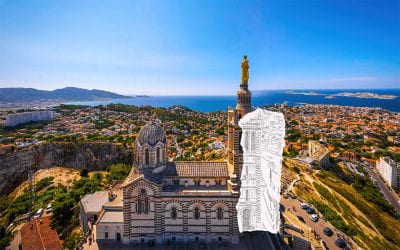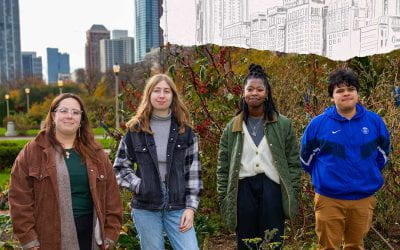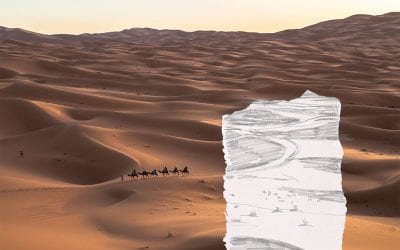President's Perspective
Winter 2023By President Ali R. Malekzadeh, PhD

We recently held our annual American Dream Reconsidered Conference. Now in its seventh year, the conference remains a success because of the hard work of our steering committee members — former faculty chairs Stewart Werner and David Faris, current faculty chairs Margaret Rung and Andrew Trees, as well as administrators Michael Ford, Nicole Barron, Mike Kaluzny, Jared Fritz-McCarty, Amanda DePalma, Keturah Brown, Kathy Bliss and Angela Short.
This year’s theme was “The American Dream and the City,” which is particularly appropriate for Roosevelt given our location in downtown Chicago.
On practicing
The official Roosevelt University podcast explores the close relationship between education and justice.

St. Clair Drake teaching a 1952 class. A sociology and anthropology professor, he coauthored Black Metropolis — the landmark study of race in Chicago.
The idea of the city has always had a central place in America. When John Winthrop was sailing to America in 1630 to found what would become the Massachusetts Bay Colony, he gave a sermon in which he famously declared, “We shall be as a city upon a hill,” a phrase that has echoed throughout American history. Of course, the city has long been a source of contestation in America as well, and the critics of American cities are legion. Still, I think Roosevelt University’s place in the heart of Chicago is one of its many strengths. It enriches all that we do and provides unique opportunities for our students and alumni.
The idea of the city has always had a central place in America. When John Winthrop was sailing to America in 1630 to found what would become the Massachusetts Bay Colony, he gave a sermon in which he famously declared, “We shall be as a city upon a hill,” a phrase that has echoed throughout American history. Of course, the city has long been a source of contestation in America as well, and the critics of American cities are legion. Still, I think Roosevelt University’s place in the heart of Chicago is one of its many strengths. It enriches all that we do and provides unique opportunities for our students and alumni.
For instance, many of Roosevelt’s courses take advantage of our location and use Chicago as a springboard for thinking about important issues. “Writing Urban Nature” in our Sustainability Studies program utilizes the city itself as the classroom, with visits around Chicago ranging from a hike through the lakefront parks to a canoe trip down Bubbly Creek. “Activism & Community Engagement” in the sociology department places students in community-based paid internships that take advantage of our connections to Chicago and also provide us with an opportunity to give back to the city.
I would also like to draw attention to one more course that is particularly related to this year’s conference—a new honors class built around the conference itself: “The American Dream… Reconsidered.” Taught by Professor Andrew Trees, the course is one of our experiential learning courses that give students a chance to explore professional opportunities beyond the confines of the classroom. Chances are you have already seen the handiwork of these students without realizing it. They helped create the social media campaign for publicizing the conference across our various platforms and also provided live Instagram coverage of each of the panels. As you page through this issue of the review, know that you will be reading their session recap’s for this years panels. And if you listen to the University’s “And Justice for All” podcast, you’ll hear these students who offered thoughtful critiques of the American dream in one of this semester’s episodes. They also met with Supreme Court Associate Justice Sonia Sotomayor, who was kind enough to share advice and life lessons she has gleaned from her many years of struggling on behalf of social justice. This course is an excellent example of the kinds of experiential and immersive learning opportunities that are so valuable to our students.
Being part of a great city like Chicago helps make all of this possible. I do not want to ignore that cities are also beset with worrisome problems. In fact, if anyone is looking for insightful criticisms on the shortcoming of Chicago and of cities in general, I would invite you to watch recordings of two of our panels from this year’s conference: “Race and the City” and “A New Deal for the City.” Both panels grapple with the ways our cities fall short of being the kind of “cities on a hill” that we would all like them to be. Still, I am grateful for the ways in which Chicago enriches all of us at Roosevelt.
And it is fitting that we have a tribute in this issue to former Roosevelt president Ted Gross, who recently passed away. Ted saw our urban setting as a key aspect of the Roosevelt experience, and we are the beneficiaries of his vision.
The conference inspired me as I hope it inspired you.
The work of building a better society is never done, and Chicago is the perfect place to try to make social justice a cornerstone of the world in which we live.
— President Ali Malekzadeh
I am incredibly proud of our students, and I am confident that their hard work and passion will play an important role in creating a more just and equitable future.
As always, I welcome your thoughts.
Write me at president@roosevelt.edu.
More in this section
unexcused absence
Some of life’s most important lessons cannot be taught inside the four walls of a classroom. Matthew Beardmore’s travel has forced him to reassess how he thinks about work, family, politics, injustice and many other issues. He’s no longer tied to the beliefs of where he grew up.
traveling while home: self-discovery through the local
How can you make the long trip home if you don’t actually leave there? A partnership between Roosevelt University’s Honors Program and Chicago Architecture Center asks students to experience space and place as sites for action—not simply places we passively inhabit.
creating a new travel niche while wandering the globe
In early 2011, Sahara Rose De Vore bought a one-way ticket to Costa Rica. Over the next 10 years, she explored 84 countries. The self-discovery she experienced inspired her to launch two successful businesses—both helping others discover the benefits of travel.



